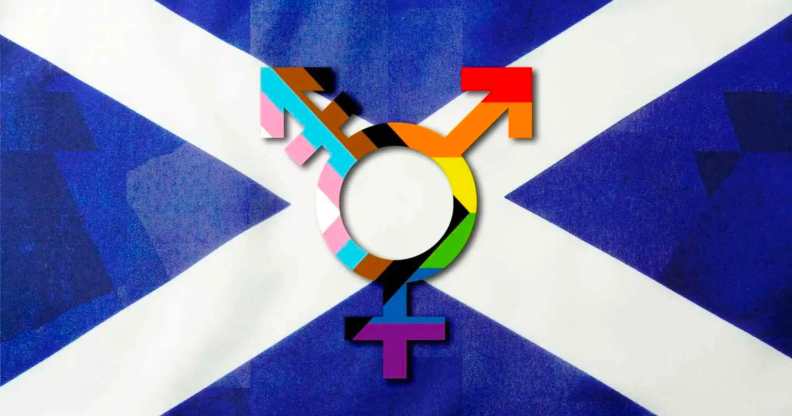Court finds in Tory government’s favour over blocking Scotland’s gender law reforms

Holyrood and Westminster went to court over Scotland’s gender law reform bill
A court has found in favour of the UK government blocking Scotland’s landmark gender law reforms.
The Scottish government lodged a court case against Westminster for using a Section 35 order to block its Gender Recognition Reform (Scotland) Bill.
The legislation, which was passed in December 2022 by 86 votes to 39, following years of consultation, would make it easier for trans Scots to change the gender markers on their official documents, as well as open up the legal transition process to 16 and 17-year-olds for the first time.
The hearing took place at the Court of Session in Edinburgh in September and was overseen by judge Lady Haldane. The case was not about the legislation itself, but rather if the UK government had the legal right to block it from becoming law.
A copy of the judgement concludes: “The challenge to the Order pronounced under section 35 of the 1998 Act, laid on 17 January 2023, fails.”
The opinion by Lady Haldane lays out the fact the Conservatives invoked the Section 35 as the government believed the bill would have an “adverse effect on the operation of the law”.
“These include the creation of two parallel and different regimes for issuing and interpreting GRC’s, the impact of removing safeguards on the safety of women and girls, founding on the potential for an increased risk of fraudulent applications, and the impacts upon the Equality Act 2010,” the Tories reasons state.
It is likely the Scottish government will appeal the case and the legal battle will end up in the Supreme Court.
Colin Macfarlane, director of Nations at Stonewall: “We’re disappointed that the Court of Session in Scotland has found in favour of the UK Government’s unprecedented decision to use Section 35 to block the Gender Recognition Reform Bill from Royal Assent.
“This Bill was one of the most debated in the Scottish Parliament’s history and was passed by a resounding majority of MSPs drawn from all major Scottish parties.
“This unfortunately means more uncertainty for trans people in Scotland, who will now be waiting once again, to see whether they will be able to have their gender legally recognised through a process that is in line with leading nations like Ireland, Canada and New Zealand.
“Whatever happens next in discussions with the UK and Scottish Governments on this matter, Stonewall will continue to press all administrations to make progress on LGBTQ+ rights in line with leading international practice.”
Secretary of State for Scotland Alister Jack welcomed the decision.
In a statement he said: “I welcome the Court’s judgment, which upholds my decision to prevent the Scottish Government’s gender recognition legislation from becoming law.
“I was clear that this legislation would have had adverse effects on the operation of the law as it applies to reserved matters, including on important Great Britain-wide equality protections.
“Following this latest Court defeat for the Scottish Government, their ministers need to stop wasting taxpayers’ money pursuing needless legal action and focus on the real issues which matter to people in Scotland – such as growing the economy and cutting waiting lists.”
As the law currently stands, in the UK trans people must apply to the gender recognition panel and present reports as well as a diagnosis of gender dysphoria – a process that can take years given the immense wait times at NHS gender clinics.
How did this story make you feel?

